March 2015: Supermarkets and Other Retailers Abused Their Power Just Before The Referendum – Spreading Fear and Doubt Within The Scottish Electorate
UK lax tax laws provide a myriad of loopholes which are widely used for tax avoidance and the Treasury is losing many £ billions of tax revenues each and every year. Just about all of the larger retailers, (supermarkets) and other food manufacturers compete for places in the top 10 tax haven users. A survey of the UK’s largest 100 public companies revealed that there are over 8,000 linking offshoots involved in business activities, (onshore and offshore) all registered in tax havens. Only 2 out of the 100 public companies had no offshoots registered in tax havens.
Referendum scare stories broadcast just before the referendum vote, by Asda, John Lewis, B&Q, Tesco, Virgin, Timpsons and many other large retailers providing goods & services to Scotland should be considered against the fact that just about all of them and their management teams pay little or no tax to the UK Treasury.
So a load of tax dodgers, briefed, instructed and to be rewarded by David Cameron, (over 100 lords created in 3 years) fully utilizing a Westminster compliant and corrupt BBC, press and other media outlets spread rumor and innuendo about unspecified price increases just before the referendum and had the desired effect creating fear in the minds of many Scots who might otherwise have voted for independence.
Cameron and Osborne and the rest of the political elite at Westminster should be ashamed allowing Trillions of tax to be dodged by billionaire owners and their management teams whilst harassing Scot’s earning a pittance for every penny they are able to screw from them.
Events since September 2014 have seen an rapid expansion of trade in smaller superstores such as Aldi & Lidl who advised Scots their pricing strategy would remain unchanged in the event of a Yes Or No vote. It was for the Scots electorate to decide their future free from any interference by retailing outlets who might have other agendas.
Trade at Tesco and the other members of the big four has taken a downturn, despite reducing the price of their goods and this appears to be permanent as the Scots electorate e exact their revenge transferring their loyalty to Aldi, Lidl and other similar outlets.
Reflecting on the foregoing it is worthwhile taking a lookback at events pertaining to the referendum, involving the supermarkets etc.
9 December 2013: Cost of food will rise in Scotland if country goes independent, warn supermarkets
Food prices in the biggest supermarkets will rise if Scotland backs independence, retail giants have warned. Big name stores like Asda, Morrisons and Sainsbury’s absorb the higher costs of doing business in Scotland so that prices are the same across the UK.
But if voters decide to go it alone in next year’s referendum, Scotland would be treated like other overseas operations where prices are higher. Longer travel distances between depots and stores in Scotland increase transport costs to good food onto shelves.


Companies which sell alcohol and cigarettes also pay higher business rates. There have already been claims that an independent Scotland will pay higher energy, mortgage and tax bills. But the warning that the weekly shop will also be more costly is likely to alarm people who have paid little attention to the debates about currency unions and EU negotiations.
Andy Clarke, chief executive of Asda, said: ‘At Asda, we believe in fairness so the price customers pay for a pint of milk or loaf of bread is the same regardless of where they live in the UK. ‘However the cost of doing business in different parts of the country does vary. ‘A yes vote in 2014 could result in Scotland being a less attractive investment proposition for business, and put further pressure on our costs.’
Dalton Philips, chief executive of Wm Morrison said: ‘If the regulatory environment was to increase the burden of the cost structure on business, that would potentially have to be passed through to consumer pricing, because why should the English and Welsh consumer subsidise the increased cost of doing business in Scotland?’ Read more: http://www.dailymail.co.uk/news/article-2520658/Cost-weekly-food-shop-rise-independent-Scotland-supermarkets-warn.html#ixzz3TRtnN0Ad
10 December 2013: Nationalist anger at supermarkets over independence food price warning
In interviews with the Financial Times, supermarket bosses said they would be unwilling to absorb the extra costs of doing business in a separate Scotland or to pass on any additional costs to customers elsewhere in the UK. The argued they already have lower margins north of the Border due to higher distribution costs and a Scottish Government tax on large shops that sell both tobacco and alcohol.
The comments were welcomed by Better Together, the campaign to keep Scotland part of the UK, while a senior academic advised voters to consider their “food security” when casting their votes in the referendum.
A senior executive from one of the major supermarkets was quoted anonymously as saying: “We would treat it as an international market and act accordingly by putting up our prices. “The costs of distribution are much higher in Scotland but at the moment that gets absorbed by the UK business.”
Supermarkets also have to pay the Scottish Government a “health levy” of £30 million a year to sell tobacco and alcohol and Scots consume more branded products, which have lower profit margins.
Tim Lang, professor of food policy at City University, told the Huffington Post: “Food prices are rising already. Scotland hasn’t got the most benign of climates to do business. “The supermarkets here are rattling their cages. Scots would be well advised to start thinking about their own food security.”
John Lamont, the Scottish Tory Chief Whip, said: “Perhaps the excitable and occasionally venomous reaction from ‘cyber-nats’- explains why more businesses don’t air their views on separation.”
Margaret Curran, Labour’s Shadow Scottish Secretary, said: “The message from supermarket bosses is clear – the cost of doing the weekly shop in Scotland is cheaper as part of the UK and would be more expensive with independence.” http://www.telegraph.co.uk/news/politics/10506626/Nationalist-anger-at-supermarkets-over-independence-food-price-warning.html
The power of the supermarkets in Scotland is greater than that of the Scottish Government – Control is reserved to Westminster – but are there other ways to moderate their activities? Well; Yes and no.
In 2006, after much critisism from small farmers supplying the supermarkets they were investigated (2 year process) by The Competition Commission.

2006: The Competition Commission is to investigate the power of the supermarkets in Scotland
Grocers, farmers and environmentalists are set to make their case against the power of the big four supermarkets at a hearing in Edinburgh. They will be giving evidence to the Competition Commission, which is carrying out an official inquiry into allegations of monopoly behaviour. It will spend two days gathering evidence in Scotland.
The big four argue they offer value for money and provide what the consumer wants. The market dominance of Tesco, Asda, Sainsbury’s and Morrisons is being investigated for the third time in seven years.
The Office of Fair Trading referred the £120bn supermarket sector to the Competition Commission in May, amid claims that top supermarkets had become too powerful and smaller stores were being squeezed out.
Scottish farmers say the supermarkets buy milk at 18p a litre, less than the cost of production, and sell it for more than 50p. The Grocers Federation says the supermarkets are selling beer at less than the wholesale price as a loss leader.
The commission is holding hearings with the Scottish Grocers Federation, the Scottish Executive, Scottish Parliament and the NFU Scotland among others.
Peter Freeman, chairman of the Competition Commission, is leading the inquiry. He told BBC Radio’s Good Morning Scotland programme he was keen to gather as much evidence as possible over the two-year investigation. He said: “We would encourage people, despite the fear factor, to give evidence to us, we will not threaten their anonymity. “There are people who would also extol what the supermarkets are doing, it’s our job to form a balanced judgement. “We have very extensive powers, but one of the reasons we are in Edinburgh is to make sure that whatever powers we exercise, in what is a reserved matter – competition – take full account of Scottish policies on the environment, on agriculture, on the food supply chain and on retailing.”
James Withers, of the Scottish NFU, warned that farmers were going out of business. He said: “Farmers are not crying for any special favours, they’re not supposed to be immune from business pressures, but they need recognition from the supermarkets that if they’re going to produce high quality that comes at a cost.”
The Scottish Grocers Federation said its members were being hit by promotions such as supermarkets selling beer at less than the wholesale price as a loss leader.
The Green Party also said the voluntary code of practice governing the supermarkets needed an independent adjudicator, or else Scottish farmers and small suppliers would be forced out of business.
Enterprise spokeswoman Shiona Baird said: “The supermarkets are currently abusing their power, leaving farmers struggling to cope with pitiful payments for their goods. “A vibrant farming industry means consumers can buy a range of high quality goods – but this cannot happen if supermarkets do not take a more responsible approach to their business.” http://news.bbc.co.uk/1/hi/scotland/5314492.stm
2008: The final report from the Competition Commission was published in 2008. Conclusions and concerns:
* The saturation of Scotland by the big four supermarket chains is: overwhelming, unfair and wasteful
* The largest four supermarket chains – Tesco, Asda, Sainsbury’s and Morrisons – control over 70% of the UK grocery market.
* 65% of milk, 75% of apples, 80% of fresh potatoes, 85% of beef and 90% of lamb are bought from multiple food retailers.
* Two thirds of suppliers say that relationships between them and retailers are a problem.
* Farmers’ share of a basket of food staples has fallen by 23% between 1988 and 2006.
* Supermarkets account for around three-quarters of the burgeoning £1.9 billion organic market.
* For every £1 spent on cashew nuts in British supermarkets, 77 pence goes to importers and retailers, 22 pence to traders and processors, and just one pence to farmers.
* 5.2 million tonnes of food-related packaging waste comes from UK homes each year.
* Scottish homes waste over £800m worth of food each year – an average of £366 per household.
* It takes 13 litres of water to produce a 70g tomato, 200 litres of water for a 200ml glass of milk, and 2400 litres of water to produce a 150g hamburger.
* Nine out of every ten drivers who shop at a supermarket say they always use a car to do so. http://www.robedwards.com/2008/02/supermarket-foo.html
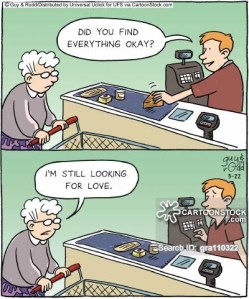
2008: Competition Commission publishes final report in groceries market investigation
The Competition Commission published its final report in its market investigation into the supply of groceries in the UK.
It has concluded that there are various features of local markets, in particular, for respectively larger grocery stores, mid-sized and larger grocery stores, that are preventing, restricting or distorting competition.
Such features include high levels of concentration at a local level, the operation of the planning regime and the control of land by incumbent retailers (which acts as a barrier to entry).
In addition, the exercise of buyer power by certain grocery retailers by transferring excessive risk and unexpected costs to their suppliers is a feature of the market for the supply of groceries that prevents, restricts and distorts competition.
To remedy the concerns identified, the Competition Commission will seek undertakings from supermarkets to requiring them to release restrictive land covenants arrangements in high concentration areas and not to enter into new restrictive arrangements of this kind.
It will also require the creation of a new Groceries Supply Code of Practice (to apply to all grocery retailers with a UK turnover in excess of £1 billion).
In addition, the Competition Commission is recommending that a “competition test” be included in planning decisions, that the Competition Act Land Agreements Exclusion Order be amended to remove agreements relating to grocery retailing from its scope and that an Ombudsman be established to arbitrate on disputes under the new Code: http://uk.practicallaw.com/1-381-4028?source=relatedcontent
A report which having identified major control difficulties brought forward a set of voluntary recommendations for supermarkets to observe.
Toothless legislation which the big four have ignored, until now preferring to allow market forces to do the talking for them.
Also of interest is the turnover threshold of £1 billion meaning that the report does not apply to any supermarket chain outwith the big four.
The major error committed by the Big Four in 2014 was their unqualified support of the Unionist Party’s, “Better Together” with implicit threats of price increases in an independent Scotland and the high profile bullying of the Scottish electorate.
Unforgiveable betrayal of their customers who up to that time had been loyal to the brand of the Big Four they had chosen.
The Scottish government should bring forward proposals allowing introduction of legislation requiring the Big Four to downsize in Scotland so that no supermarket chain is able to corner business exceeding £1 Billion per annum.
This would result in a major expansion of market providers many returning to the high streets and shopping precincts of our towns and cities
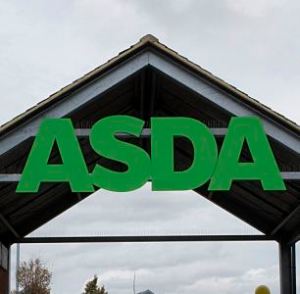

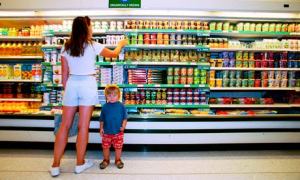

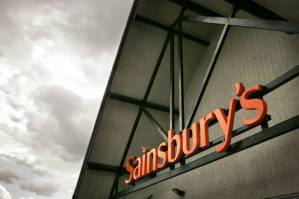

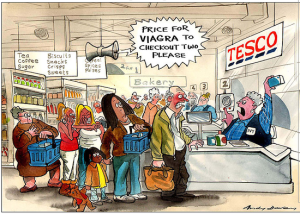











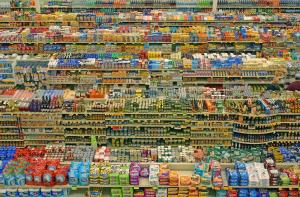





Leave a comment